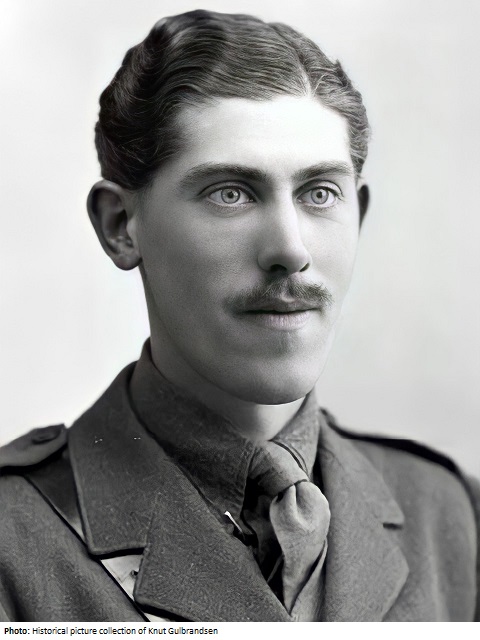Arnold Jackson

Biographical information
| Roles | Competed in Olympic Games |
|---|---|
| Sex | Male |
| Full name | Arnold Nugent Strode•Jackson (-Strode-Jackson) |
| Used name | Arnold•Jackson |
| Nick/petnames | The Jacker |
| Born | 5 April 1891 in Addlestone, England (GBR) |
| Died | 13 November 1972 (aged 81 years 7 months 8 days) in Oxford, England (GBR) |
| Measurements | 176 cm / 67 kg |
| Affiliations | University of Oxford, Oxford (GBR) |
| NOC |  Great Britain Great Britain |
| Medals | OG |
| Gold | 1 |
| Silver | 0 |
| Bronze | 0 |
| Total | 1 |
Biography
While at Malvern College, Arnold Jackson was an outstanding runner, cricketer, footballer and boxer, and when he went up to Braesenose College, Oxford, in October 1910, he spread his sporting interests even wider. He represented his College at football and hockey, and became a useful golfer and a better oarsman; but on the advice of his uncle Clement Jackson, a former holder of the world high hurdles record and the current Treasurer of the Oxford University, AC, Arnold took up running again. Even by the standards of that time, his training was extremely casual; but his natural talent was such that after winning the Oxford University AC mile in 1912, he won the mile against Cambridge in a respectable 4:21.6 seconds. On the strength of his performance alone, he was selected to represent Great Britain at the Olympic Games in Stockholm.
In the Olympic 1,500 metres, seven of Britain’s nine entrants were eliminated in the heats and only Jackson and Philip Baker of Cambridge (later Lord Noel-Baker) qualified for the final. In comparison with the other finalists Jackson was a complete novice, but with his long raking stride he came through from seventh place down the home straight, overtaking among others, the American holder of the world mile record John Paul Jones and world record holder at 1,500 metres Abel Kiviat Jackson’s winning time of 3:56.8 seconds was a new British and Olympic record.
On his return from Stockholm Jackson continued his running at Oxford, but although he was an Olympic champion and the British record holder he never even bothered to enter for the AAA Championships. He won again against Cambridge in 1913 and 1914, and in April 1914 he went to America and ran his last race at the Penn Relays, bringing the Oxford team home first in the 4×1 mile relay. So his brilliant track career ended after no more than half a dozen first-class races.
In the war, Jackson served with the King’s Royal Rifle Corps and achieved distinctions which more than matched his sporting honors. He became the youngest Brigadier-General in the British Army, was Mentioned in Despatches six times and won the DSO and three Bars; only six other officers were similarly decorated. In 1919 he adopted Strode as an additional surname by deed poll and the change was registered at the College of Arms, but he retained Strode as a forename and was known as Arnold Nugent Strode Strode-Jackson. Before settling in America in 1921, he was a member of the British delegation to the Paris Peace Conference and was awarded the CBE for his services. He became an American citizen in 1945 but his last years were spent in England.
Personal Bests: 1500 – 3:56.8 (1912); Mile – 4:21.4 (1912).
Results
| Games | Discipline (Sport) / Event | NOC / Team | Pos | Medal | As | |
|---|---|---|---|---|---|---|
| 1912 Summer Olympics | Athletics |  GBR GBR |
Arnold Jackson | |||
| 1,500 metres, Men (Olympic) | 1 | Gold |